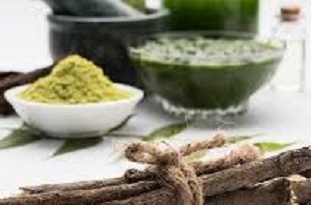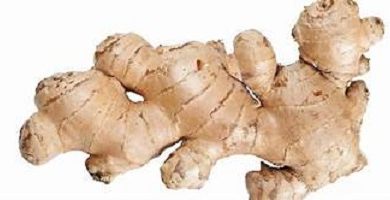Astragalus Benefits, Uses, Side effects & More
Astragalus Benefits, Uses, Side effects & More. Please Watch >>>>
- An Ancient Root with Health Benefits
- Astragalus (Huáng Qí): Benefits, Side Effects, and Dosage
Table of Contents
What to know about astragalus benefits ~ an Overview
If you want to keep your immune system strong and healthy – and who doesn’t these days? – You may have heard of the herb astragalus.
According to the National Center for Complementary and Integrative Health, it has been used in traditional Chinese medicine for centuries and is touted as a treatment for colds, seasonal allergies, asthma, chronic fatigue syndrome, kidney disease, and wound healing in addition to its immune-boosting properties (NCCIH).
What Is Astragalus?

Astragalus membranaceus is the Latin name for the herb astragalus, which belongs to the Fabaceae plant family.
The astragalus species can be found all over the world, including Southwestern Asia, the Chinese Himalayan region, the Americas, and Europe.
Other common names for astragalus include:
- Milkvetch
- Huáng qí
- Radix astragalus
The flowering plant astragalus (Astragalus membranaceus) For thousands of years, the root has been used in traditional Chinese medicine (TCM).
Astragalus Benefits & Uses
The root of the astragalus plant is used in traditional Chinese medicine, as well as to make supplements and herbal remedies.
It is usually combined with other herbs.
Over 100 species of astragalus have been studied for biologically active compounds by scientists.
The three main active compounds are:
- Polysaccharides, or complex carbohydrates
- Flavonoids
- Saponins
Astragalus, on the other hand, contains a variety of other compounds, including three groups of toxic constituents.
It was frequently combined with other herbs to help the body fight disease.
Astragalus Uses & Benefits
Astragalus is known as an adaptogen, which means it helps protect the body from various stresses, such as physical, mental, or emotional stress.
The astragalus may aid in the prevention of diseases such as cancer and diabetes. It contains antioxidants, which help to protect cells from damage.
Astragalus Benefits & Uses
Astragalus is used to strengthen and protect the immune system, as well as to prevent colds and upper respiratory infections, lower blood pressure, treat diabetes, and protect the liver.
The astragalus is antibacterial and anti-inflammatory. It is sometimes applied to the skin to treat wounds.
Furthermore, studies have shown that astragalus has antiviral properties and stimulates the immune system, implying that it may aid in the prevention of colds.
The chemicals in astragalus appear to stimulate the immune system and reduce swelling.
Astragalus is commonly used to treat hay fever, diabetes, kidney disease, and a variety of other conditions, but there is no good scientific evidence to support these claims.
There is also no convincing evidence to support the use of astragalus for COVID-19.
Species
Astragalus has numerous species. Some species have been linked to livestock poisonings due to the presence of a nerve toxin.
Astragalus lentiginosus, Astragalus mollissimus, and other species are among them.
However, these species are rarely found in dietary supplements. Astragalus membranaceus is found in the majority of astragalus supplements.
Also, astragalus should not be confused with tragacanth. These are two distinct plants.
The health benefits of astragalus
Because of its alleged health benefits, astragalus is used in traditional Chinese medicine.
Some of the Astragulus health benefits include:
- Antioxidant effects
- Modulation of the immune system
- Antiviral effects
- Cardiotonic activities, or stimulation of the heart muscle
Uses & Effectiveness
Astragalus is a herb that has been used for centuries in traditional Chinese medicine.
It is said to have numerous health benefits, including immune-boosting, anti-aging, and anti-inflammatory properties.
Astragalus is thought to extend the life and is used to treat a wide range of ailments, including fatigue, allergies, and the common cold. It’s also used to treat heart disease, diabetes, and other ailments.
Possibly useful for
Reducing chemotherapy side effects; According to preliminary research, giving astragalus intravenously (IV) or using Chinese herbal mixtures containing astragalus may reduce nausea, vomiting, diarrhea, and bone marrow suppression (a decrease in the cells that provide immunity) associated with chemotherapy treatments.
Diabetes
Early research suggests that astragalus, administered intravenously (IV) or orally as part of a combination product, may help people with type 2 diabetes control their blood sugar and insulin levels.
Side Effects
When taken orally, astragalus may be safe for most adults.
Doses of up to 60 grams per day have been used safely for up to 4 months. Astragalus is commonly tolerated.
When used on the skin: There isn’t enough reliable information to know whether astragalus is safe or what the potential side effects are.
Faqs
What does astragalus do for the body?
Astragalus is used to strengthen and protect the immune system, as well as to prevent colds and upper respiratory infections, lower blood pressure, treat diabetes, and protect the liver.
The astragalus is antibacterial and anti-inflammatory. It is sometimes applied to the skin to treat wounds.
Who should stay away from astragalus?
Astragalus should therefore be avoided if you are taking immunosuppressive medications.
Astragalus root should not be used by pregnant or nursing women.
You should not use astragalus root if you have an immune system disease such as multiple sclerosis, lupus, rheumatoid arthritis, or another autoimmune disease.
Can I take astragalus daily?
When taken orally: Most adults may be able to tolerate astragalus.
Doses of up to 60 grams per day have been used safely for up to 4 months. Astragalus is commonly tolerated.
Does astragalus have side effects?
Interactions and Side Effects
Astragalus is well tolerated by the majority of people.
However, minor side effects such as a rash, itching, runny nose, nausea, and diarrhea have been reported in studies.
When administered intravenously, astragalus may cause more serious side effects, such as irregular heartbeat.
When is it best to take astragalus?
Astragalus may help people with type 2 diabetes lower and manage their blood sugar levels.
A study found that taking astragalus daily for several months can improve blood sugar levels after fasting and after meals.
Does Astragalus make you look younger?
Another way Astragalus exhibits anti-aging properties is by protecting the mitochondria of the cell.
It helps to eliminate or significantly reduce any free radical damage to your cells, which can help your skin look younger.
Can Astragalus cause liver damage?
Astragalus has not been linked to clinically significant liver damage.
Because of its potential effects on CYP activity, herb-drug interactions should be considered before using it.
Astragalus tea
Astragalus tea bags can be brewed like any other tea, or 1 tablespoon of dried, shredded astragalus root can be simmered in 2 cups of water for 10 minutes, covered.
Serve hot or cold with a strainer.
Where to buy
Dried astragalus root slices are available at Chinese grocery stores and some health-food stores; look for organic versions.
Does Astragalus cause hair loss?
Although Astragalus membranaceus has been shown to inhibit immune responses, its effect on hair loss is unknown.
Who should not consume astragalus?
Astragalus should therefore be avoided if you are taking immunosuppressive medications. Astragalus root should not be used by pregnant or nursing women
You should not use astragalus root if you have an immune system disease such as multiple sclerosis, lupus, rheumatoid arthritis, or another autoimmune disease.
Cancer and astragalus
Limited clinical evidence suggests that astragalus may be beneficial in the treatment of cancer-related fatigue.
It has also been linked to longer survival times in patients with acute myeloid leukemia, and it may help reverse chemo-induced immunosuppression while also reducing chemo-induced side effects.
Astragalus sleep ~ Does astragalus root help with sleep?
Reduces Sleep Issues
Regular consumption of astragalus root can alleviate insomnia, sleeplessness, and disrupted sleep patterns.
This root can help you sleep better by improving your overall health, metabolism, and hormonal balance.
Astragalus Uses
The astragalus is used to strengthen and protect the immune system, as well as to prevent colds and upper respiratory infections, lower blood pressure, treat diabetes, and protect the liver.
The astragalus is antibacterial and anti-inflammatory. It is sometimes applied to the skin to treat wounds.
6 Amazing Astragalus Root Health and Beauty Benefits
- Heart Health
- Seasonal Allergy Relief
- Reduces Stress 4. Improves Sleep
- Anti-Aging Qualities
- Immune System Booster
Many studies are still being conducted to determine the full range of Astragalus benefits.
However, its roots in Chinese medicine and over a thousand years of use cannot be denied.
Astragalus is best consumed by incorporating it into soups or drinking it as tea.
The astragalus benefits for lungs
Astragalus (Astragalus membranaceous) is a well-known immune-boosting herb in Chinese medicine.
It is primarily used as a lung tonic and may aid in the prevention of respiratory infections. It is also used as a tonic for the digestive system.
Astragalus benefits for kidneys
The astragalus is also thought to help kidney function by improving blood flow and kidney function markers such as protein content in the urine.
Astragalus, for example, has been shown to improve proteinuria, a condition characterized by excessive protein in the urine.
Astragalus benefits for skin
The astragalus is antibacterial and anti-inflammatory. It is sometimes applied to the skin to treat wounds.
Furthermore, studies have shown that astragalus has antiviral properties and stimulates the immune system, suggesting that it may help prevent colds.



Pingback: Astragalus Root: Benefits, Uses, and Side Effects - 9jafoods